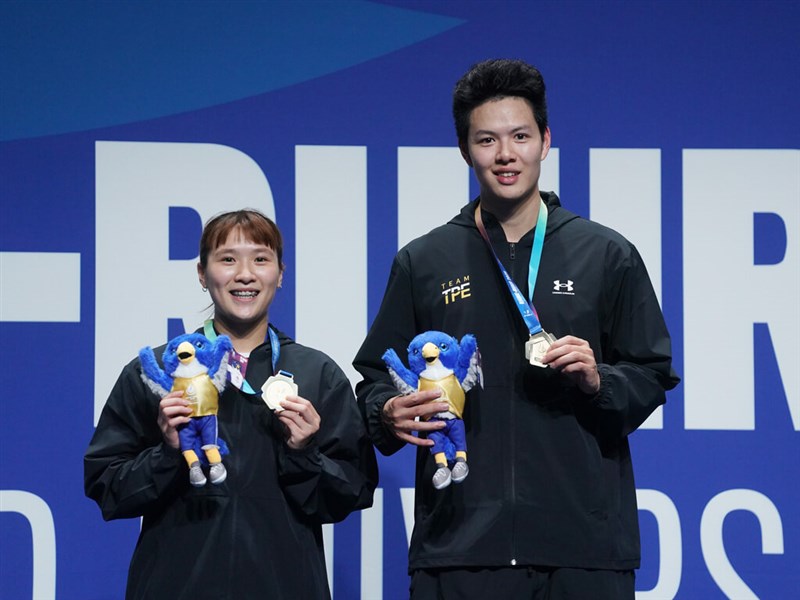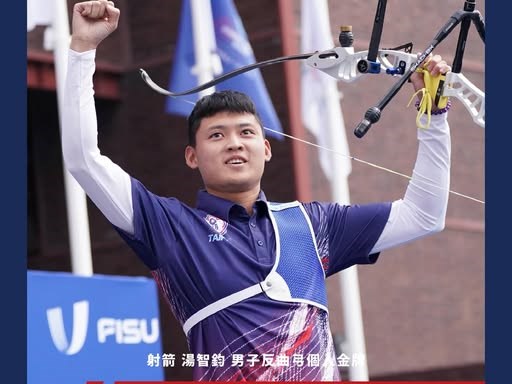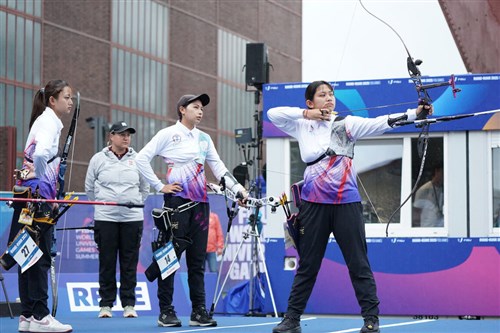UNIVERSIADE / Taiwan condemns China over harassment of athletes at Universiade
07/24/2025 03:15 PM
Taiwan's government and opposition have denounced an incident involving two Chinese individuals allegedly harassing Taiwanese athletes at the 2025 Universiade in Germany, with Premier Cho Jung-tai (卓榮泰) calling the act a case of "political interference."
(Full text of the story is now in CNA English news archive. To view the full story, you will need to be a subscribed member of the CNA archive. To subscribe, please read here.)
More in UNIVERSIADE
-
![Taiwan shuttlers dominate mixed doubles at World University Games]() Taiwan shuttlers dominate mixed doubles at World University GamesBadminton players from Taiwan secured three of the four medals in the mixed doubles event at this year's World University Games in Germany on Saturday.07/26/2025 10:23 PM
Taiwan shuttlers dominate mixed doubles at World University GamesBadminton players from Taiwan secured three of the four medals in the mixed doubles event at this year's World University Games in Germany on Saturday.07/26/2025 10:23 PM -
![Archer Tang Chih-chun wins men's individual recurve Universiade gold]() Archer Tang Chih-chun wins men's individual recurve Universiade goldTaiwanese archer Tang Chih-chun (湯智鈞) won gold in the men's individual recurve at the 2025 World University Games in Germany on Saturday.07/26/2025 07:30 PM
Archer Tang Chih-chun wins men's individual recurve Universiade goldTaiwanese archer Tang Chih-chun (湯智鈞) won gold in the men's individual recurve at the 2025 World University Games in Germany on Saturday.07/26/2025 07:30 PM -
![Taiwan's women's recurve team wins silver at World University Games]() Taiwan's women's recurve team wins silver at World University GamesTaiwan's women's recurve archery team took silver at the 2025 FISU World University Games in Germany on Friday after a 2-6 loss to Japan.07/26/2025 11:48 AM
Taiwan's women's recurve team wins silver at World University GamesTaiwan's women's recurve archery team took silver at the 2025 FISU World University Games in Germany on Friday after a 2-6 loss to Japan.07/26/2025 11:48 AM
Latest
-
Society
Taiwan releases forced labor prevention guide for businesses
02/24/2026 09:39 PM -
Politics
KMT to propose legislative oversight for advanced chip technology exports
02/24/2026 09:20 PM -
Society
Phone, text scam attempts fall 36.97% year-on-year in Taiwan
02/24/2026 09:07 PM -
Science & Tech
Google to launch budget Pixel 10a in Taiwan March 5
02/24/2026 08:55 PM -
Society
Free COVID vaccination extended to April 30 ahead of possible surge: CDC
02/24/2026 08:29 PM


